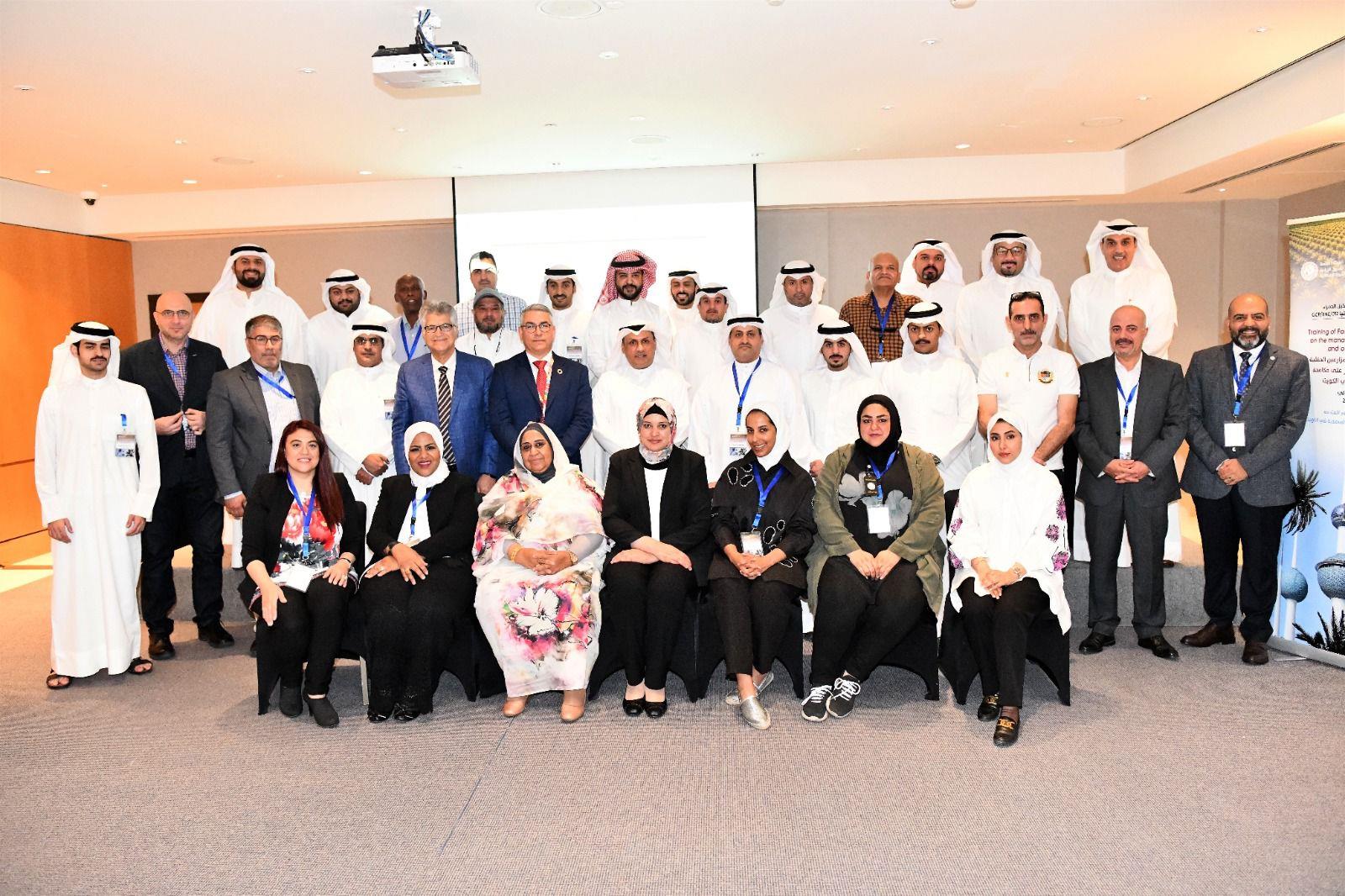FAO trains Farmer Field Schools facilitators on management of date palm pests in Kuwait

Kuwait, 08 May 2023- Within the framework of the regional programme for Red Palm Weevil(RPW) management in the Near East and North Africa region, the Food and Agriculture Organization of the United Nations (FAO), in cooperation with the Public Authority of Agriculture Affairs and Fish Resources in Kuwait, held a training programme for Farmer Field Schools (FFS) facilitators on managing date palm pests, focusing on the Red Palm Weevil (RPW) in Kuwait, from 8 to 11 of May. The training was attended by FAO regional experts and trainers as well as more than 30 participants working in the date palm sector in Kuwait.
The programme was held for the first time in Kuwait and aimed to enhance the capacities of agricultural extensionists to establish and implement farmer field schools and to improve the skills and capabilities of farmers in controlling RPW and other date palm pests.
“The training programme in the State of Kuwait is of great importance as it focuses on training FFS facilitators and the specifications for establishing and preparing successful FFS topics as well as how to prepare the agricultural crop calendar and the analysis of the agro-ecosystem. The training also discusses the wrong practices in the integrated management of RPW and other palm pests stressed Thaer Yaseen, Plant Protection Officer at the Regional Office of the Food and Agriculture Organization of the United Nations for the Near East and North Africa region (NENA).
“Recent studies on assessing RPW’s social and economic impact in the NENA region showed that the annual cost of RPW treatment programs is about $5.7 million in Egypt and about $34.4 million in Saudi Arabia. Moreover, the annual value of lost palm trees and the lost revenues associated with them costs around USD 213 million in Egypt and around USD 401 million in Saudi Arabia,” added Yaseen.
“The issue of the RPW pest occupies an advanced position among the priorities of the State of Kuwait due to the importance of preserving and protecting palm trees as a national wealth and improving its productivity,” stated Amal AbdulKareem on behalf of Nasser Taqi, Deputy Director General for Plant Wealth Affairs at the Public Authority for Agriculture Affairs and Fish Resources in Kuwait. She pointed out that the current situation of RPW infection and the measures taken to limit its spread indicates a positive dimension of dealing with it.
RPW is a serious pest that attacks around 40 species of palms in more than 50 countries, causing widespread damage to palm trees and other crops and affecting production, farmers' livelihoods, and the environment. The Regional Programme for RPW management in the NENA region aims to address the gaps in managing RPW in three main areas: scientific research, technology transfer, and capacity building. The programme also developed five working groups in the areas of RPW monitoring and early detection, activating the participation of farmers, developing RPW control protocols and techniques, studying RPW social and economic impact, and developing phytosanitary systems and border protocols, as well as producing certified palm propagation materials for RPW sustainable management.
